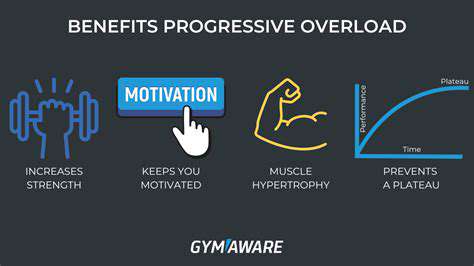Guide to Connecting Sleep Quality and Immune Health

Dietary and Lifestyle Factors Influencing Sleep and Immunity
Nutritional Intake and Sleep Quality
A balanced diet rich in essential nutrients plays a crucial role in promoting healthy sleep. Consuming a diet high in processed foods, sugary drinks, and excessive caffeine close to bedtime can disrupt sleep patterns. These foods can lead to a surge in blood sugar followed by a crash, impacting the body's natural sleep-wake cycle. Conversely, a diet rich in complex carbohydrates, lean proteins, and healthy fats can promote sustained energy levels throughout the day, leading to a more restful night's sleep. Prioritizing nutrient-rich foods like fruits, vegetables, and whole grains is essential for maintaining optimal sleep quality and overall health.
Furthermore, adequate intake of vitamins and minerals, such as magnesium and vitamin B6, is crucial for sleep regulation. Magnesium is known to promote relaxation and reduce stress, contributing to better sleep. Vitamin B6 is involved in the production of neurotransmitters essential for regulating sleep cycles. A deficiency in these essential nutrients can lead to sleep disturbances and negatively impact immunity.
Hydration and Immune Function
Staying well-hydrated is essential for both sleep and immune function. Dehydration can lead to fatigue, headaches, and difficulty concentrating, all of which can disrupt sleep patterns. Adequate hydration supports the body's natural detoxification processes, helping to flush out toxins that can interfere with sleep. Drinking plenty of water throughout the day, especially in the hours leading up to bedtime, can contribute to a more restful night's sleep. However, avoid excessive fluid intake too close to bedtime to prevent nighttime awakenings to urinate.
Stress Management Techniques and Sleep
Chronic stress is a significant factor contributing to sleep disturbances and weakened immune responses. High levels of stress hormones like cortisol disrupt the body's natural sleep-wake cycle, making it difficult to fall asleep and stay asleep. Implementing stress management techniques, such as regular exercise, meditation, or deep breathing exercises, can significantly improve sleep quality and boost the immune system. Finding healthy ways to manage stress is crucial for maintaining both physical and mental well-being.
Exercise and Immunity
Regular physical activity is vital for a healthy immune system. Exercise helps to improve blood circulation, boosting the delivery of oxygen and nutrients to the body's tissues, including the immune cells. Moderate-intensity exercise, such as brisk walking, jogging, or swimming, can enhance immune function without overtaxing the body. However, it's important to note that excessive or strenuous exercise can have the opposite effect, leading to stress and potentially suppressing the immune system. Finding a balance between physical activity and rest is essential for optimal health and well-being.
Sleep Hygiene and Immune Support
Maintaining consistent sleep schedules, creating a relaxing bedtime routine, and ensuring a conducive sleep environment are crucial for improving sleep quality and supporting a healthy immune response. A consistent sleep-wake cycle helps regulate the body's natural circadian rhythm, promoting better sleep and overall health. Dimming lights, avoiding screens, and establishing a relaxing pre-sleep routine can contribute to a more peaceful and restorative sleep experience. Creating a quiet, dark, and cool bedroom environment is also essential for optimal sleep.
Gut Health and Sleep/Immune Connection
The gut microbiome plays a significant role in both sleep and immune function. A healthy gut microbiome is essential for maintaining a strong immune system and promoting restful sleep. A diet rich in fiber, prebiotics, and probiotics can support the growth of beneficial bacteria in the gut, fostering a healthy gut environment. Conversely, a diet high in processed foods and sugar can negatively impact the gut microbiome, leading to inflammation and disrupting sleep patterns. Improving gut health through dietary choices can have a positive ripple effect on both sleep quality and immune function.
Read more about Guide to Connecting Sleep Quality and Immune Health
Hot Recommendations
-
*Guide to Managing Gout Through Diet
-
*Best Habits for Financial Well being
-
*How to Build a Routine for Better Mental Health
-
*How to Eat Healthy on a Budget [Tips & Meal Ideas]
-
*Guide to Practicing Self Acceptance
-
*How to Incorporate More Movement Into Your Day
-
*Guide to Managing Chronic Pain Naturally
-
*Guide to Building a Reading Habit for Well being
-
*Top 5 Weight Loss Supplements That Actually Work
-
*Best Exercises for Postpartum Recovery [Beyond Abdominal Work]











